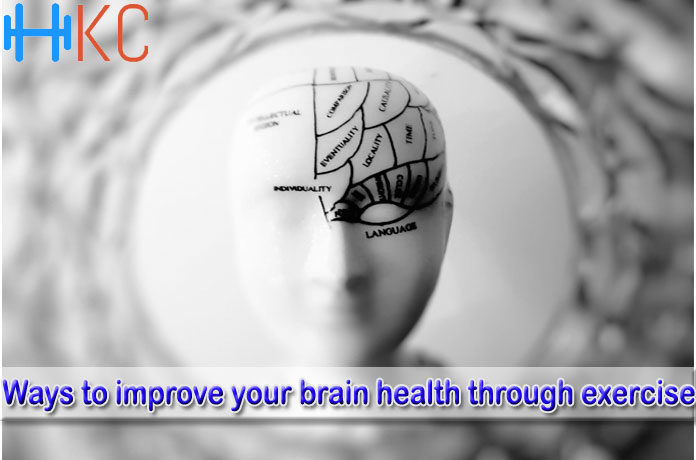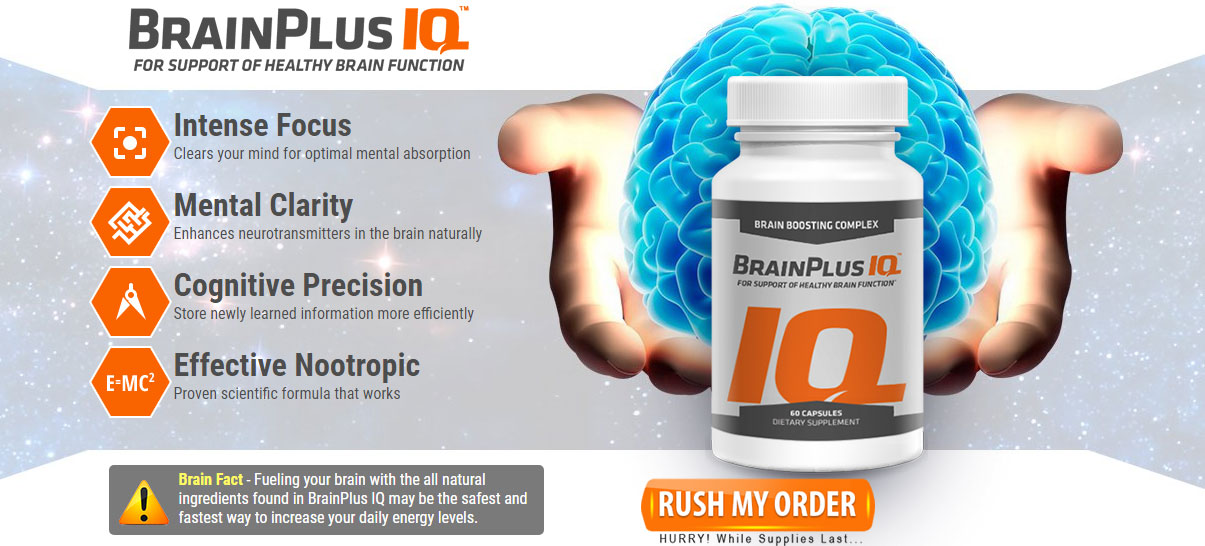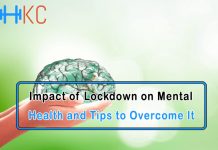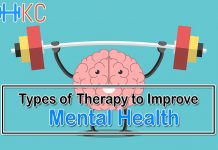
Exercise is good for both the body and the brain. Recent studies have shown that regular exercise can help slow the natural decline in brain function that happens with age. Yet, how much exercise do you need and what type to improve your brain health? We break it down so you can get healthier physically and mentally.
How Does Exercise Affect the Brain?
The brain is a muscle, and like all muscles in your body, if you do not exercise, then you will lose it. While working out in the gym you increase the growth of muscular cells, it is similar when you exercise your brain you increase the neural connections. So how does this work?
Exercise stimulates the growth of connections because of the brain’s plasticity, meaning the brain can easily change for better or for worse. The flexibility of the brain can help or harm us, depending on how we use it. For example, by exercising regularly the brain will form new connections in the cortical areas, which is responsible for higher brain functioning.
Another way exercise affects the brain is by a drop in stress hormones. People who exercise experience a “runner’s high,” which was associated with increased cell growth in the hippocampus part of the brain. The hippocampus is responsible for memory and learning, so it is important to keep this part of the brain in shape as you age.
How much do you need to exercise
A recent study that was published in Neurology: Clinical Practice explored how often you should practice to increase brain function. The data included 11,000 older people and tested 122 different brain functions. The study showed that people who exercised over 52 hours over a six-month period had the biggest improvements on thinking and speed tests. The average amount of exercise is just a little over two hours a week. The improvement was shown in people with mild cognitive impairment, dementia, and people without cognitive decline.
When should you exercise
The peak time you should exercise is in the morning before work, school, or other daily activities. This is because exercising this early can increase intellectual performance throughout the day. The highest benefit of the increased cognitive functioning is 90 to 120 minutes after you exercise, so get your most important work done right after your workout.
Choosing the Right Exercise
How do you know where to start when choosing the right exercise? The answer is to do what is right for you and your body. Different people will have different physical requirements and limitations, which means there is no one size fits all solution. The general rule is any exercise that is good for your heart is also good for your brain, so that is a good place to start. In addition, ask your doctor for recommendations before starting a new exercise regimen.
Aerobic Exercise
Endurance exercise is a good way to improve both heart and brain health. Some examples of aerobic exercise include biking, swimming, and running. The important thing to remember is to push yourself some, but you should still be able to speak in full sentences while doing your exercise. If you cannot speak, you are pushing too hard and overworking your body.
Strength Training
Strength training can be done by using resistance bands or lifting weights. Not only does it increase muscle, but it also strengthens your bones and boosts your brain power. Furthermore, strength training can enhance concentration, improve mood, and enhance decision-making skills.
Keep in mind strength training does have to mean going to the gym and lifting heavy weights. Start small and move up in weights slowly. If you are not looking to increase your muscle size, do more repetitions at a lower weight. This will keep your body toned, work your muscle cells, and increase your brain health without muscle gains.
Flexibility
Keeping your flexibility is important because it improves your posture while reducing your risk of injury as you workout. Do gentle stretches on a regular basis to increase your flexibility. Another option is to take up yoga or tai chi.
Mental and Physical Exercise
While physical exercise will boost your brain health, it is important to do mental exercises as well. Combining both mental and physical exercises increase cognitive functions. Again, your brain is always changing due to its plasticity so you want it changing for the better. The more you work it out, the stronger and more adaptable it will become. So what are some mental exercises you can do? Here is a list to get you started:
- Learn a new instrument
- Take a cooking class
- Test your recall
- Do math in your head
- Learn a new language
- Try a new sport
- Taste new foods
- Pick up a hobby that involves fine-motor skills
- Draw a map from memory
- Meditate
Other Ways to Improve Brain Health
Mental and physical exercise are the best way to improve your brain health, but there are other things you can do throughout the day as well. In fact, you may already do these things without thinking about them.
Multitasking is a good way to strengthen the part of the brain that is associated with perception effort, which means it makes hard work feel easier. You may multitask throughout the day while doing chores or things around the house, but you can also incorporate it into your exercise routine. For example, riding a bike and reading a book simultaneously is a good way of multitasking to benefit both the mind and body.
Getting enough sleep is also important for your brain health and improving cognitive function. Most adults, that is 95 percent, need seven and a half to nine hours of sleep every night. If you are not getting enough sleep, your memory, problem-solving, creativity, and critical thinking skills will be compromised. The best way to ensure you have enough sleep is to get on a regular sleep schedule.
Socializing with your friends is a fun and simple way to improve your brain health. A recent Harvard School of Public Health study showed that people who had active social lives had a slower rate of memory decline. Some easy ways to socialize include going out with friends, joining a club, or volunteering.
Do you find yourself stressed a lot? Stress is one of the worst things for your brain as chronic stress can destroy cells in the hippocampus, the part of the brain that is responsible for forming new memories. To reduce stress, take small breaks throughout the day and say no if you find yourself doing too much. Find a balance between work and leisure because too much of one or the other will get you off balance. Meditation is also a great way to reduce stress, so regular daily meditation can reduce overall stress.
The Takeaway
Physical exercise is a great way to improve your brain health and there are lots of different ways to get a good workout. It is important to remember that mental exercises combined with physical exercises provide the most benefit. Start out slowly and build up your workouts as you go along. No matter what you do, doing something is better than doing nothing.









































